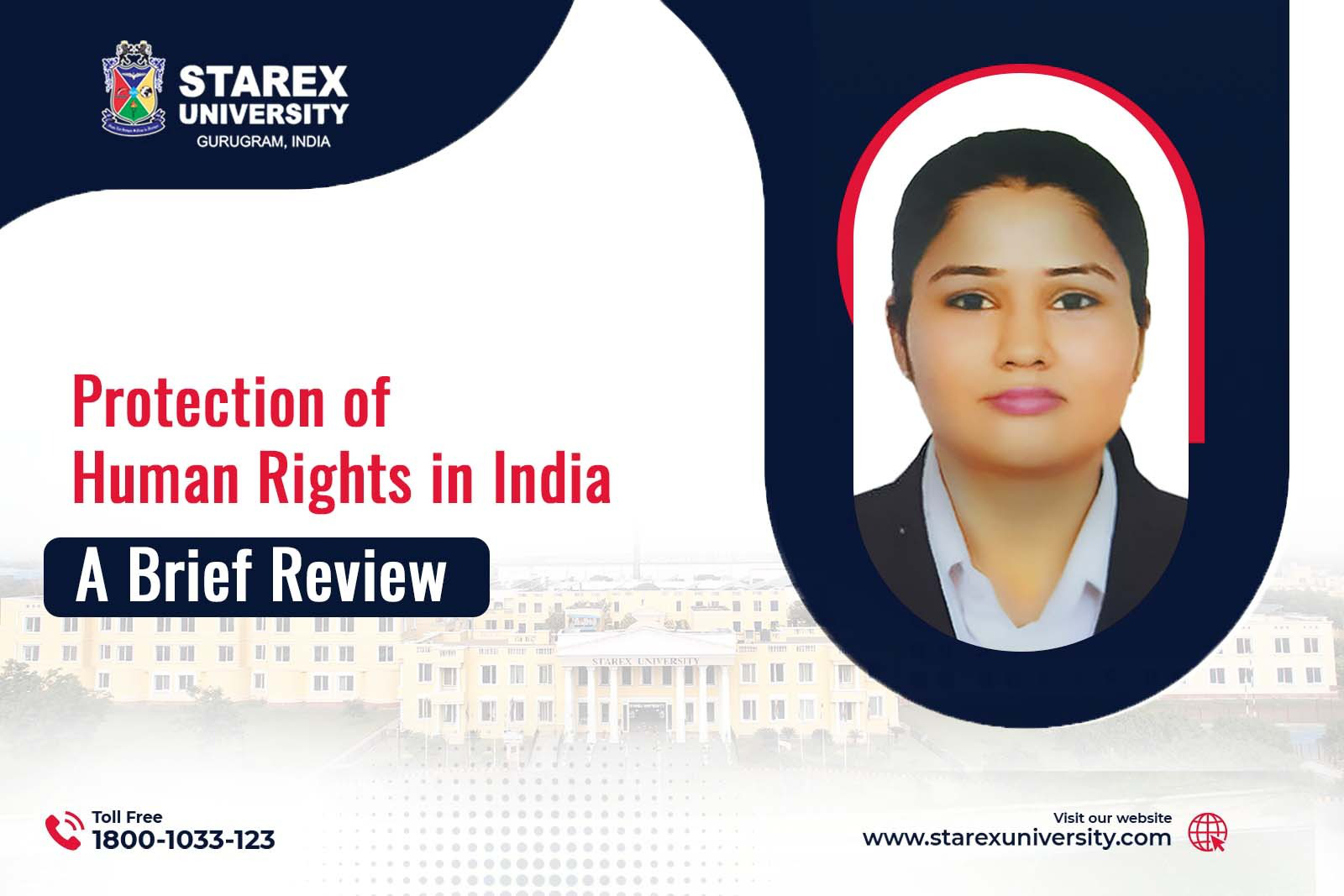Admission Helpline : 1800 1033 123 1800 1033 123
1800 1033 123

Posted By:Admin Posted On: 05-Feb-2024
India is one of the democratic countries with a parliamentary form of government.
The Government of India has given utmost importance to human rights. The Constitution of India also considers that these rights are inalienable and inseparable rights of a human being. The Universal Declaration of Human Rights contains civil and political rights, economic, social and cultural rights as well. Part III of the Constitution contains in it the civil and political rights and part IV contains economic, social and cultural rights. The preamble of the Constitution contains its ideals and objectives which also provides for the protection of dignity of an individual. There are eleven fundamental rights, initially these were ten but with the 86th amendment act, 2002 added the right to education. Fundamental rights are enshrined to save the individual from wrongfully being exploited by the state. These are justiciable rights that mean they can be enforced in the court of law. On the contrary if we talk about directive principles of state policy which are provided under Part IV are non-justiciable. These rights include the right to equality, the right to freedom, and the right against exploitation, the right to freedom of religion, cultural and educational rights and the right to constitutional remedies. Dr. B.R Ambedkar called the right to constitutional remedies as the heart and soul of the Indian constitution. The state is under the obligation to protect these rights and to take actions in case of infringement of any of these rights. And these duties of the government are enforced by Part IV of the constitution. Because of these provisions the individual is able to enjoy human rights to the fullest extent. Now the question arises that if any of the right is violated by anyone then what would be the next step? For this, Article 32 and 226 of the constitution is the saving provision that provides for the right to constitutional remedies by the way of writs. Article 32 empowers an individual to go to the Supreme Court in case of infringement of any fundamental right, whereas Article 226 contains the right to go to High Court in the same case. There are a total five types of writs namely, Habeas Corpus, Mandamus, Certiorari, Prohibition and Quo Warrento. These wits can be filed in different cases.
With the passage of time, human rights gained a lot of importance. No doubt, these rights are Inalienable and no one has power to violate such rights. There are different agencies and bodies that are being formulated for proper implementation of these rights. The regulatory and administrative bodies take appropriate steps in any such case of infringement, meaning thereby these rights are given priority and are treated as the basic survival for a human being. Also, an individual may seek judicial remedies in case of infringement of such basic rights. The establishment of the UN, UDHR and ONHCR is proof of how much these rights are given importance. People are empowered by such rights and without them human survival is not possible with dignity. So, stand up for Human Rights.